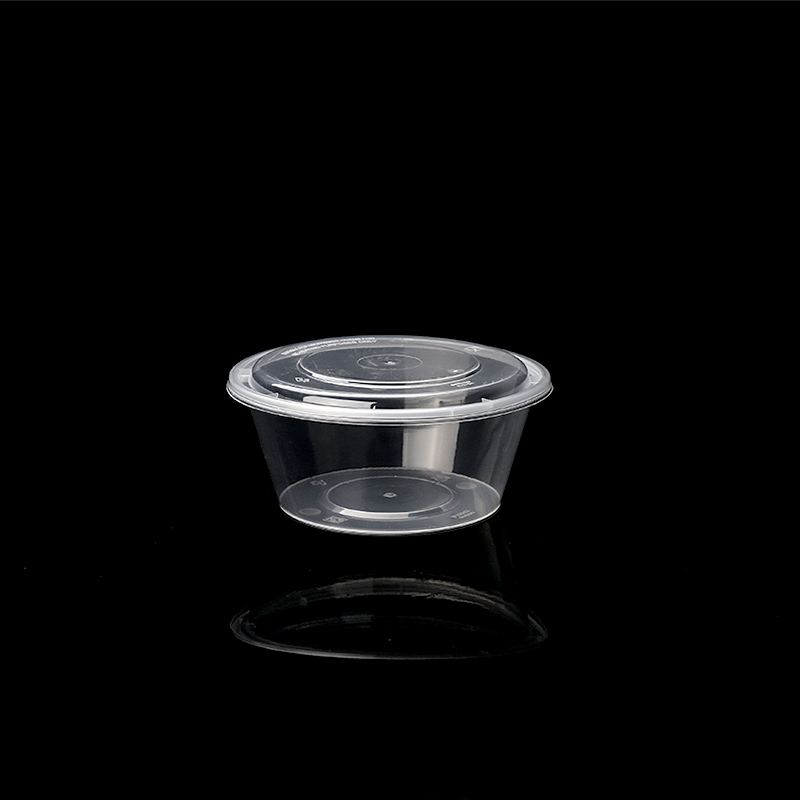
In contemporary kitchens worldwide, polypropylene (PP) salad bowls have become indispensable tools for health-conscious consumers and professional chefs alike. As dietary preferences shift toward fresh ingredients and meal prepping gains popularity, Anbao‘s research team has observed growing interest in understanding how material science impacts food preservation quality and sustainability outcomes.
What Are PP Salad Bowls?
PP salad bowls are food-safe containers made from polypropylene, a thermoplastic polymer known for its durability, chemical resistance, and adaptability. Unlike traditional materials such as polystyrene or PVC, PP is non-toxic, odorless, and free from harmful additives like BPA. This ensures safe storage and serving of both hot and cold foods, from salads and grain bowls to soups and desserts.
Designed for versatility, PP bowls maintain their structural integrity across a wide temperature range, making them suitable for freezing, microwaving, and dishwasher use. Their lightweight yet sturdy construction addresses the demands of fast-paced food service environments while aligning with global sustainability goals.
Key Features and Functional Benefits
Leak-Proof and Durable Design
The inherent toughness of polypropylene ensures these bowls resist cracks and impacts, even when stacked or transported. Many designs feature secure, snap-on lids with silicone seals to prevent spills—a critical advantage for saucy dishes, dressings, or liquid-based meals.
Lightweight and Space-Saving
PP’s low density makes these bowls exceptionally lightweight, reducing shipping costs and easing handling for delivery services. Their uniform shape allows efficient stacking, optimizing storage in commercial kitchens, food trucks, or home pantries.
Reusability and Easy Maintenance
PP salad bowls are dishwasher-safe, enabling repeated use without degradation. This reusability reduces single-use waste and operational costs, particularly in high-volume settings like cafeterias or catering events.
Material Safety and Compliance
Food safety is paramount in packaging. Reputable manufacturers adhere to stringent international standards to ensure PP salad bowls meet:
FDA Compliance: Certified for direct food contact.
LFGB (Europe): Ensures no migration of harmful substances.
REACH (EU): Regulates chemical safety across the supply chain.
PP is chemically inert, meaning it does not react with acidic, oily, or salty foods. This preserves flavor integrity and prevents contamination. Additionally, the smooth surface resists staining and odor retention, maintaining hygiene over multiple uses.
Sustainability and Environmental Considerations
While plastic packaging faces scrutiny, PP salad bowls offer eco-friendly advantages when managed responsibly:
1. Recyclability
PP is recyclable under resin code #5. Proper disposal in designated recycling streams allows the material to be reprocessed into new products, such as automotive parts or textiles, reducing landfill waste.
2. Extended Lifespan
Unlike single-use alternatives, PP bowls are robust enough for reuse in meal prep, storage, or even DIY projects, minimizing reliance on disposable items.
3. Innovations in Circular Design
Manufacturers are increasingly incorporating post-consumer recycled (PCR) PP into production, supporting circular economy initiatives. Research into bio-based PP derived from renewable resources (e.g., sugarcane) further reduces dependence on fossil fuels.
4. Reduced Waste Generation
PP’s durability lowers the risk of container damage during transit, decreasing overall waste. Energy-efficient manufacturing processes also contribute to a smaller carbon footprint.
Applications Across Industries
PP salad bowls serve diverse sectors due to their adaptability:
Food Service: Ideal for quick-service restaurants (QSRs), cafes, and food trucks serving salads, poke bowls, or hot meals.
Meal Delivery: Leak-proof designs ensure meals arrive intact, even with liquid components like dressings or broths.
Catering and Events: Reusable bowls simplify large-scale food service while reducing single-use waste.
Households: Perfect for meal prep, leftovers, or packed lunches due to their microwave-safe and easy-clean features.
Healthcare and Education: Hospitals and schools prioritize safety with non-toxic, durable containers for patient meals or student lunches.
The Future of PP Packaging
As sustainability regulations tighten and consumer preferences shift, PP salad bowls are poised to evolve with advancements such as:
Smart Labeling: QR codes to guide recycling or share sourcing information.
Hybrid Materials: Combining PP with compostable layers for easier end-of-life processing.
Lightweighting: Thinner yet stronger designs to minimize material use without compromising performance.


